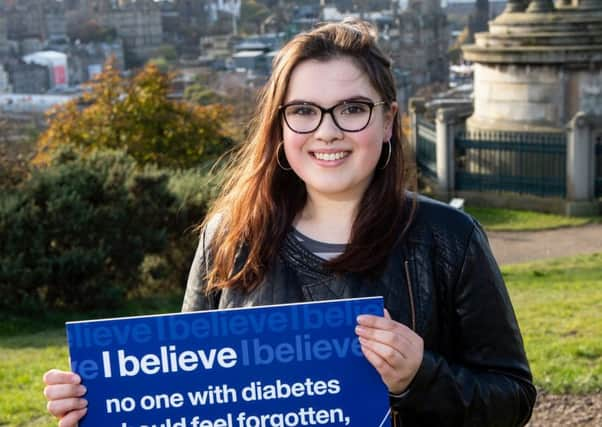Groundbreaking diabetes drug trial aims to revolutionise future treatment in Scotland


The pioneering initiative will see researchers from the University of Glasgow co-lead the study alongside colleagues from the State University of New York.
The TTT-1 trial will look to help the overwhelming number of people with the condition whose blood sugar levels are not controlled to targets, despite improvements in technology including insulin pumps and continuous glucose monitoring.
Advertisement
Hide AdAdvertisement
Hide AdIt has been described by JDRF, the leading global organisation funding type 1 diabetes, as “the single most advanced drug-based study to date in type 1 diabetes”.
The TTT-1 trial will begin in Scotland early next year and will assess a new combination therapy with insulin, balancing the effects of two drugs called dapagliflozin and semaglutide.
It is being led by the University of Glasgow’s global leader in the treatment of type 1 diabetes, Professor of Diabetic Medicine Dr John Petrie.
The trial aims to address a gap in existing diabetes treatment, which sees a majority of people on insulin therapy with HbA1c above the recommended target of 7 per cent, indicating high blood glucose over the previous two to three months.
Prof Petrie said: “The hope is to use the combination therapy of dapagliflozin and semaglutide to reduce HbA1c to less than 7 per cent in the majority of people with type 1 diabetes. Since these drugs have benefits for the heart and can also induce weight loss, there may be additional advantages of this combination, which would be very positive for those with the condition.
“In addition, both dapagliflozin and semaglutide are likely to reduce unpredictable fluctuations in blood glucose levels, thus providing a greater sense of security for people with type 1 diabetes, substantially improving quality of life.”
Type 1 diabetes affects about 400,000 people in the UK – 29,000 of them children.
Rachel Connor, director of research partnerships at JDRF, said: “Type 1 diabetes is a really challenging condition to manage and the limitations of the tools we have, both technologies and medicines, mean many people with the condition struggle to achieve the glucose management targets recommended by doctors.”